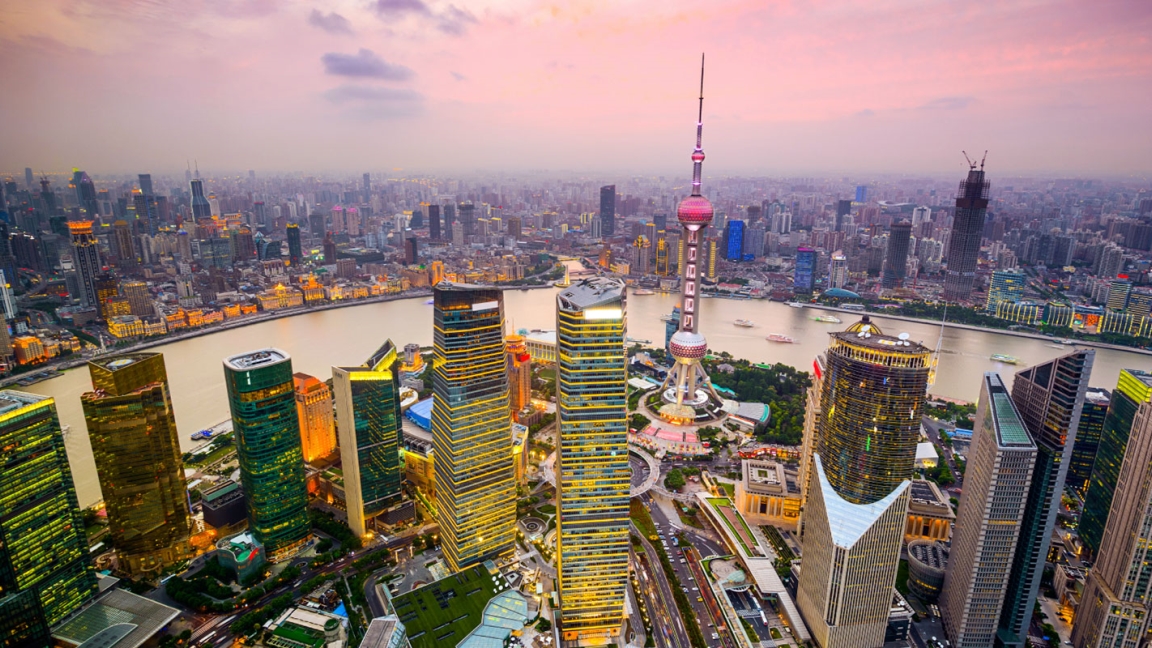
As geopolitical fault lines harden, city-to-city ties offer rare continuity. Shanghai's long-standing partnerships with European cities, such as Hamburg, Milan and Rotterdam, demonstrate how cooperation continues to thrive quietly, purposefully, and with strategic relevance.
In the halls of national parliaments and global summits, relations between Europe and China are increasingly defined by terms such as "de-risking," "strategic autonomy," and even "systemic rivalry." But take a step down the ladder – from foreign ministries to municipal governments – a different picture emerges, one where dialogue remains not only possible, but also effective. Shanghai knows this well.
Across Europe, cities like Hamburg, Milan, Rotterdam and Liverpool have maintained active partnerships with Shanghai, some for over four decades. These relationships span a wide array of fields: port logistics, environmental management, technological innovation, culture and education. They have long been framed as "non-political," grounded in practical needs and mutual benefit. The fact that these partnerships do not make the front page is telling.
City diplomacy is increasingly viewed – especially in China – as a form of resilience, a means to maintain cooperation even as national-level dialogue becomes more volatile. In this context, local partnerships become both a barometer of tensions and a discreet vehicle for continuity. What is less clear today, however, is whether this perspective still holds sway across Europe.
A dense and durable network
Shanghai's relationships with European cities are far from symbolic. For instance, Hamburg has partnered with Shanghai since 1986 and even has a Hamburg Liaison Office in the Chinese metropolis. Their collaboration spans shipping, renewable energy, and cultural exchanges, highlighted by Hamburg's annual "China Time" festival.
In Italy, Milan's relationship with Shanghai began in 1979 and focuses on fashion, design and innovation. Both cities worked together during Expo Milano 2015 and the China International Import Expo and continue to share insights on smart city initiatives and urban recovery post-pandemic.
Rotterdam, with its major port, sees Shanghai as a key ally for maritime and green logistics. In the UK, Liverpool fosters educational and cultural ties with Shanghai through university partnerships and museum collaborations.
These relationships, rooted in shared interests, thrive on formal agreements and exchanges, showcasing the essence of city diplomacy: prioritizing problem-solving over ideology.
Shadows of suspicion
Still, city diplomacy does not operate in a vacuum. Collaborations with Chinese entities have faced heightened scrutiny across Europe due to alleged intellectual property theft, influence operations, and uneven reciprocity. As a result, several governments are reviewing or even suspending these partnerships.
For instance, the Netherlands has encouraged municipalities to reassess their sister-city ties with China due to "national security concerns." Similar discussions are happening in Sweden and the Czech Republic. In the UK, the closure of Confucius Institutes and stricter regulations on university partnerships have created a chilling effect on broader ties. Some German media are questioning whether local engagement allows for covert influence.
In France, a new narrative is emerging: City diplomacy is being seen as a method for the Chinese government to gain access to critical infrastructure and potentially use that access as leverage in negotiations.
Shanghai, despite its global city image, is part of these discussions. As one of China's most internationally engaged cities, its initiatives are increasingly scrutinized through a geopolitical lens. This creates a dilemma for European authorities: Should they continue beneficial projects with Chinese partners despite the allegations, or should they pull back and risk losing access to valuable expertise and partnerships?
Why local cooperation matters
Amid this ambiguity, one fact stands out: Many urban issues are transnational, and solutions often lie in sharing experiences. Climate adaptation, an aging population, digital transition, urban mobility, and waste management are shared challenges – areas where cities can work together to discover and promote effective practices.
City diplomacy empowers local governments to experiment with ideas, initiate partnerships, and gain practical insights in ways beyond national diplomacy. For European cities, engaging with Shanghai means tapping into innovative infrastructure, smart city technologies, and new markets. Conversely, Shanghai benefits from enhanced reputation, policy insights, and broader visibility on the global stage.
These exchanges are more than formalities. Collaborations among research centers, cultural institutions, port authorities, start-up incubators, and even fire departments foster strong connections and resilience in bilateral relationships. This opens doors for municipal planners, museum curators, and climate officers to influence international cooperation in a people-focused and sustainable manner.
Importantly, these relationships build lasting institutional knowledge and personal trust, acting as safety nets during political turbulence or crises.
A call for concerted guidelines
That said, more European countries are starting to recognize that not all city diplomacy is neutral. For partnerships to be viable and legitimate, they must be grounded in accountability and reciprocity. Local governments need to consider: Who benefits from these exchanges? Is there equitable access, funding, and decision-making? Do projects reflect the city's values and strategic goals?
This is why more voices are advocating for clear guidelines and regular reviews of partnerships. The challenge lies in Europe's tendency to pursue this unilaterally, often without engaging with Chinese counterparts, which can create an atmosphere of distrust. This suspicion could become a self-fulfilling prophecy, leading to negative outcomes.
In this climate, a global city like Shanghai could leverage its influence to avoid counterproductive and potentially irreversible outcomes. It can underscore that city diplomacy – rooted in mutual interests and handled with care – provides a constructive way forward. Shanghai should also remind European partners that risks exist for both sides, highlighting the importance of collaborative frameworks.
While these local relationships may not shift the broader China-Europe dynamic, they do help maintain open communication, resolve issues, and strengthen connections. In uncertain times, that alone is worth preserving.
(The author is a Paris-based independent researcher. The views are her own.)

